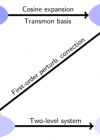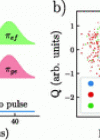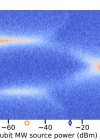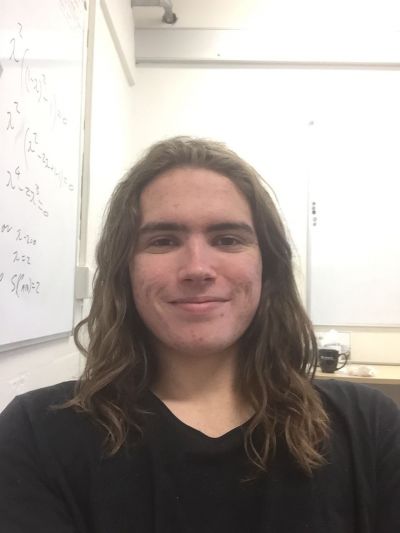Quantum mechanics postulates that measuring the qubit's wave function results in its collapse, with the recorded discrete outcome designating the particular eigenstate the qubit collapsed into. We show this picture breaks down when the qubit is strongly driven during measurement. More specifically, for a fast evolving qubit the measurement returns the time-averaged expectation value of the measurement operator, erasing information about the initial state of the qubit, while completely suppressing the measurement back-action. We call this regime `quantum rifling', as the fast spinning of the Bloch vector protects it from deflection into either of its two eigenstates. We study this phenomenon with two superconducting qubits coupled to the same probe field and demonstrate that quantum rifling allows us to measure either one of the two qubits on demand while protecting the state of the other from measurement back-action. Our results allow for the implementation of selective read out multiplexing of several qubits, contributing to efficient scaling up of quantum processors for future quantum technologies.







